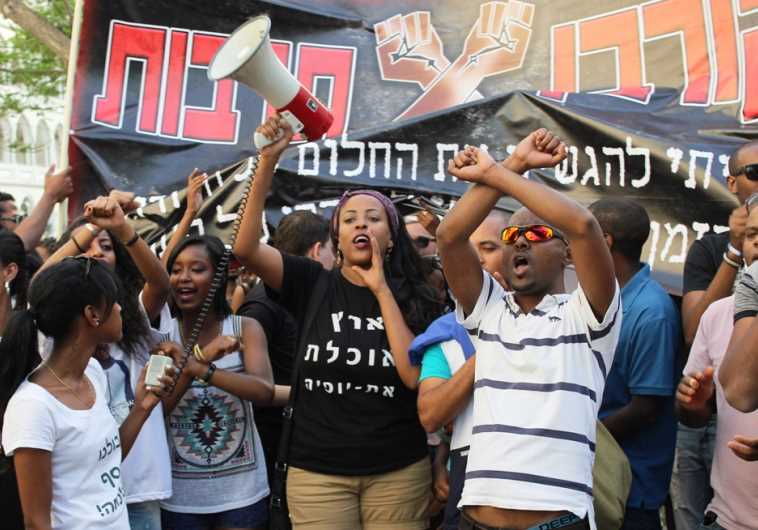Israeli-Ethiopian protesters return to Tel Aviv to rally against police brutality, racism
A couple hundred demonstrators participant in relatively calm protest compared to violent outburst seen weeks earlier at Rabin Square.
 Demonstrators in Tel Aviv gather to protest racism and police brutality, May 18, 2015(photo credit: BEN HARTMAN)
Demonstrators in Tel Aviv gather to protest racism and police brutality, May 18, 2015(photo credit: BEN HARTMAN)